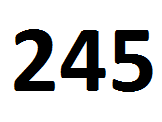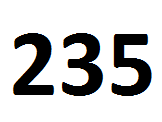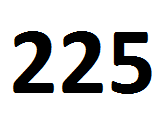Dr. Andreas Carl, MD, PhD gives great suggestions on how to prep for USMLE Step 1.
You are about to take the most difficult exam of your life
it also is the most important one for your future career. The score you will receive, together with the letters of recommendation from your 3rd and 4th year rotations will determine what kind of Residency you will end up in, and this will have major impact on your future. So please, take this exam very very seriously. If you are a US medical student, most of you will pass this exam, but it is incredibly important to achieve the best score you are capable of.
If you are on top of your class, most likely you will also be on top on the USMLE. If you are at the bottom of your class, most likely you will struggle with the USMLE, but there is nothing that could prevent you from also achieving a top score. So here are some tricks and tricks from my own experience with the USMLE:
- The USMLE is quite unlike the exams you are used to. In med school, professors sometimes try to “trick” you into false answers. Not so on the USMLE. The USMLE questions are all professionally written, and there are no tricks. If a question appears too simple, don’t attempt to “second-guess” it, or search for a trap – there is none, it is simply an easy question. The USMLE is a mix of very basic questions, difficult questions, and some extremely difficult questions (designed to distinguish between the top 5% performers). So don’t get frustrated if you come across incredibly difficult items, just mark your best guess and move on. Everyone is in the same boat…
- I went to medical school in Germany and then took the USMLE in the US more than 10 years later (when I had forgotten all my anatomy and biochemistry from long-ago 😉 There were two things that helped me achieve a top-score, and I am very passionate about these: First, find a study partner. The perfect size for a study group is exactly 2 people, cause it means you are constantly engaged. It is not important whether you are of similar skill and knowledge or not. You will be amazed how much you learn, when you are forced to explain topics to someone.
Second, practice multiple choice questions. Do as many as you possibly can. Around 100 per day sounds about right, but if you can’t do 100, then do 50 and if you can’t do 50, do 10. Put a book with questions right next to your bed, and do your 10 questions before you get up in the mornings, then contemplate your mistakes while you are brushing your teeth. Seriously. Start today!
- There are many collections of multiple choice questions available. One of the best, but also expensive one, is Kaplan Qbank. I myself actually prefer book questions, cause I like to mark my text, underline things, cross out wrong things, flag all the questions I got wrong so I can easily review them later. Maybe I am old-fashioned – if you prefer to sit in front of computer screens, then use online Qbanks. Just make sure to WORK with the questions.
Don’t use them to assess your knowledge! Be happy if you get practice questions wrong, cause it means you learned something. Make yourself a list of all your mistakes, then review this list just the day before the exam. Believe me, my own list of mistakes was a couple dozen pages long (SMILE), but at least I knew that I wouldn’t make the same mistakes on exam day!
- It is much better to study 2 hour every day for the next 60 days, then trying to study 12 hours a day in just the last week before the exam. Nobody will ever ask you about your Pathology or Pharmacology grades you got in med school (but make sure you pass…). Make the USMLE your top priority. Now!
- There are many review books available for the USMLE. Much of it is a matter of taste and your own learning style. I myself (surprise, surprise) like my own “USMLE Made Ridiculously Simple” charts, cause I find them very efficient for memorization. If you need more explanations, use “First Aid for the USMLE Step 1“, this is the most popular of the comprehensive reviews and very good.
Good Luck!
About the Author: Andreas Carl, MD, PhD is a practicing pathologist, and author of several books on USMLE prep, including Medical Boards Step 1 Made Ridiculously Simple, Medical Boards Step 2 Made Ridiculously Simple, Medical Boards Step 3 Made Ridiculously Simple, and NCLEX-RN Made Ridiculously Simple. He has also contributed sections to Appleton&Lange’s Review for the USMLE Step 1, Second Edition, Appleton&Lange’s Review for the USMLE Step 3, Second Edition, and Appleton&Lange’s Review of Physiology. Second Edition.
You can get more of his advice on his website for USMLE Step 1.
Topics #Andreas Carl #step 1 #USMLE Made Ridiculously #usmle tips





